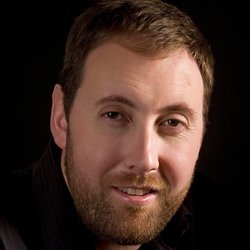Brief Encounter with…British bass Matthew Rose
Who or what was the biggest musical influence in your life?

That would be Mikael Eliasen who is head of the voice department at the Curtis Institute. He took me on as a basically very raw nothing and somehow trusted that I had a voice in there, so took me to the Curtis Institute to study for five years, and without him I wouldn’t be where I am now. The other person would be Herr Schubert who really got me into classical music and singing his songs.
What made you want to pursue a career in opera?
It’s not just opera as I’ve always loved singing. Opera is about a third of what I do as I adore singing German lieder, and doing concerts with orchestras. I guess opera is my bread and butter, where you make the money. Opera can be quite limiting and there are other things that can be more satisfying. I love being on stage, but you have a conductor and director telling you what to do, where with singing lieder there is more freedom.
How did the commission from Martin Suckling come about and what can we expect from that?
A very dear friend of mine called Michael Cuedigan, who was also a friend of the Angell Trio, died in 2012, and we decided to set up a Trust in his memory. Although the work from Michael Suckling was commissioned from elsewhere, the concert at the end of March marks
the launch of the Michael Cuedigan Trust.
If you had to single out three career-defining moments, what would they be and why?
I’ve been incredibly lucky the way my career has progressed, so I would have to say meeting Mikael Eliasen at the Curtis Institute was the biggest thing that ever happened to me. After five years at the Curtis I was eager to head back to Britain, as I love the way music is done here, so I applied to the Young Artists Programme at Covent Garden and got in somehow. They were a pretty amazing few years as I got to perform with all my heroes. The third, being a Sussex boy, would be singing Bottom in A Midsummer Night’s Dream at Glyndebourne in 2006, as that was pretty outstanding as well as it launched me into the opera world and I’ve been fortunate to have repeated that role at Covent Garden, La Scala and the Met New York.
What new roles are there on the horizon?
The last three years have been unbelievably busy. I’m about to perform Leporello in Berlin, followed by Donizetti’s Anna Bolena, and somehow I’ve got Baron Ochs (Der Rosenkavalier) to learn. It’s a massive role and very tricky but I’ve got two more years before that happens at the Lyric Opera, Chicago then Houston. I’m also very involved with concerts and community projects at Blackheath Halls putting on community operas with amateur musicians, working with children and children with special needs. We also have Ed Gardner coming to conduct Elijah with us on March 22 as not only is he is a good friend of mine, but he’s our patron as well, so at the moment it’s a very busy time for me.
What advice would you give to any budding singers who want to follow an operatic path?
To be a professional classical singer takes an unbelievable amount of knowledge. You need musical skills, language skills, theatrical skills – it’s demanding as you’re expected to do all these things to a very high level. You can never know your music well enough, you can never know the language well enough – it’s a really tough one to do and you need to be thoroughly prepared. You also need a great singing teacher who’s going to give you a technique that’s going to last and enable you to fill an auditorium. It’s a really hard thing to do.
You’re stranded on a desert island but are allowed one musical score, which would you take with you and why?
One musical score? OK – I’m a bit obsessed with Mahler’s Second Symphony, and it’s been a dream for a long time that I actually get to conduct it on my fiftieth birthday. If I’m on a desert island and I don’t have any friends to play music with me, then I’ll just have my Mahler 2 score, but bear in mind that my fiftieth birthday is quite a long way away!
Matthew Rose sings Martin Suckling’s new commission Songs from a bright September with the Angell Trio at the Royal Opera House on March 31. The programme also includes Hugo Wolf’s Grenzen der Menschheit and Mendelssohn’s Trio in D. Admission to this recital is free.










